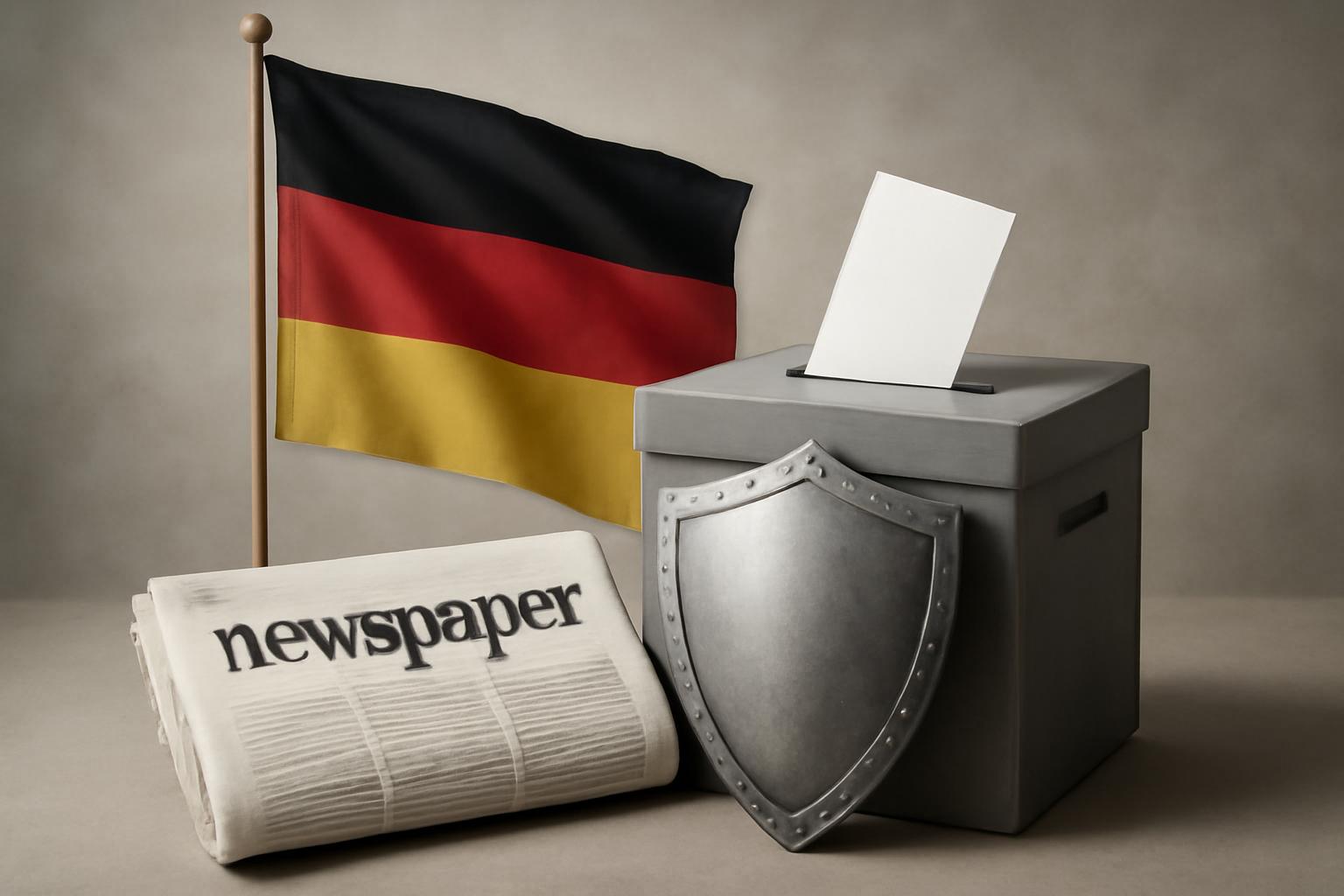A political row in Germany centers on the delicate boundary between a free press and the power of political factions, with the instinct to classify voices into convenient camps colliding with the reality that a healthy democracy thrives on a broad and competing marketplace of opinion. A senior government figure expresses irritation at a CDU president’s comparison of a right-leaning online outlet with a left-leaning daily, vowing to speak with her directly while insisting that such equivalence cannot be accepted. The CDU leader defends her appearance at a regional party event hosted by a businessman who funds the outlet, arguing that the methods of the outlet resemble those of the left-leaning daily and that democracy must tolerate a wide spectrum of opinion; the left-leaning paper distances itself from the comparison. A second senior party figure questions whether a respected elder statesman would speak in similar terms, and signals a wish to ventilate the matter in private rather than in public, while a trusted party secretary voices support for a plural media landscape and normalcy in engaging with major employers, urging restraint and perspective since the matter has mostly stayed within Berlin circles.
From where I stand, this quarrel reveals a fundamental, perennial tension that public life too readily neglects: the danger of letting political actors police the boundaries of what may be said, and the even greater danger of inviting the state or party apparatus to adjudicate who may speak and what may be spoken. The instinct to pigeonhole outlets by their alleged “side”—to treat a newspaper as merely a partisan instrument rather than a forum where ideas must contest each other—is precisely the impulse that corrodes the spontaneous order of knowledge upon which peaceful, progressive social coordination rests. The pluralism of the press is not a luxury or a signaling device for convenience; it is an indispensable mechanism by which society tests its beliefs, discovers new information, and corrects errors through the hard but hopeful process of free discussion and dispersed judgment.
If a democracy must tolerate many opinions, it does so not by mandating endorsement or by policing labels, but by safeguarding the conditions in which truth can emerge from controversy. That means protecting the independence of the press from political patrons, insisting on the transparency of ownership and funding, and resisting the temptation to equate influence with legitimacy. It means recognizing that a media outlet’s stance, or its backers, or even its funding sources, do not render its assertions false or its presence illegitimate simply because they clash with official or convenient narratives. In the complex market of information, the most potent corrective is not a grand proclamation of who is “in the right” but the unceasing competition of ideas, the rigorous scrutiny of claims by many voices, and the public’s capacity to discern through experience and argument.
The impulse to equate or to punish outlets that appear to serve particular interests, or to seek a more symbiotic relationship with business figures who fund such outlets, is a temptation toward a subtle form of political coordination that erodes the very fabric of free inquiry. When a high officeholder treats a media actor as a mere instrument of a faction, or when a leader’s legitimacy becomes contingent upon applause from the newsroom, the independence that makes democratic governance resilient is imperiled. The sane instinct is to keep office and newsroom at arm’s length enough to preserve mutual trust in the processes by which citizens form judgments, while never forgetting that the strength of a republic lies in the adaptability of its institutions to a diversity of opinions rather than in the uniformity of approved voices.
A sensible observer would urge that the quarrel be resolved not by appeals to loyalty or caricature, but by reaffirming the rules that protect discourse: a culture that prizes candor, a rule of law that protects freedom of expression, and a media landscape where outlets compete on veracity, persuasiveness, and accountability rather than on proximity to political patrons. The health of a democracy rests on the courage to confront wrong ideas with better arguments, and on the humility to acknowledge how little any one actor can know or control, especially in an economy of information where signals are dispersed and knowledge is dispersed even more so.
And so I would insist that a plural media landscape is not merely desirable but essential; it is the institutional safeguard that prevents the consolidation of power in the hands of a few who pretend to know what “the public” ought to think. If politicians mistake the chorus of opinions for a chorus of commands, they betray the very instrument that can keep them honest: the open exchange of ideas, unshadowed by undue influence, in which truth may be pursued through debate rather than decreed through edict.
